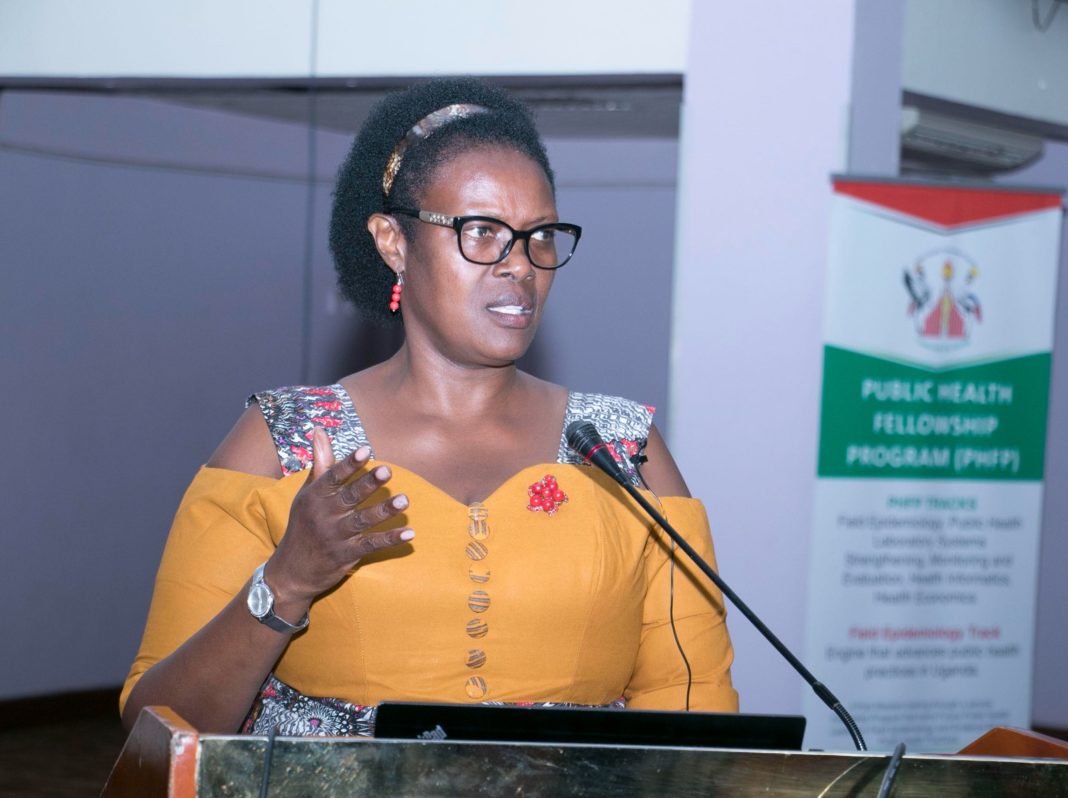Margaret Muhanga, the State Minister in-charge of Primary Health Care has urged men to go slow on issues to do with embracing Deoxyribonucleic acid -DNA.
The minister advised men to stop going for the DNA paternity testing, saying that it is not beneficial to the wellbeing all over.
She said that it is not really important for men to go for DNA paternity tests, asking how a normal man who has raised his child/children, would wake up admiring to lose them because of doubting paternity.
“Biology does not matter. If you have raised your children, they automatically become your children. No one is looking for the child after all.
Minister Muhanga asked men to stay with their children without doubting them in order to keep harmony. “Because if you hear people killing each other because of DNA, why are you even going for it. Minister queries.
According to her, what you do not know has no harm to anyone. “Anything that you don’t know will not kill you. If you do not know that it is not your child, it will not break your heart. But when you find out, your heart will be broken”. She added.
The minister made the remarks during the launches of Makerere University’s Public health fellowship programme-laboratory leadership programme, that took place in Kampala, on Tuesday.
Attending the event was also; World Health Organization-WHO, Dr Henry Mwebesa, Dr Amy Boore of US CDC, Ms Kim Lewis of APHL, Prof Rhoda Wanyenze of MaKSPH, Dr Alex R. Ario of APHL, among others.
The event saw a group of the first cohort of the same programme, who are the pioneers graduate. These are; Martha Nankya, Anthony Kiyimba, Priscilla Atim, Shem Mwebaza and Leah Naluwagga.
The above carried out studies like Evaluation of turnaround time for yellow fever testing in Uganda from January 2022 to March 2023, Evaluation of HIV Early Infant Diagnosis and Viral Load logistics inventory management system in Uganda laboratory hubs, Strengthening HIV Test Kits inventory management at an HIV testing Laboratory, Kampala, 2023, Experiences and lessons in coordinating laboratory activities during disease outbreaks in Uganda and Fellowship achievement from a fellow’s point of view between January to July 2023, respectively.
The Ministry of Health welcomed the programme and recommended it with hopes that I will make a difference in the laboratory sector.
Minister Muhanga noted that it would improve efficiency in service delivery and the experience of patients while in health facilities.
“This programme is good because it includes inhumaneness in the training of health workers. People go and train but sometimes they don’t know how to deal with human beings. So, once they are managing laboratories, they are not trained to manage the laboratories but also how to manage their clients and their workmates” Muhanga said.
Dr. Mwebesa, who is the Director General for Health Services, said laboratories that are conducting sensitive tests should be more responsible.
He notes that some lab experts issue results negligently disregarding implications that these actions could have.
“As laboratory leaders, you need to know how to communicate results and the right channels to follow. In the DNA paternity tests, you don’t just carry out the tests and throw results to the complaining man and say that it is not your child. Dr. Mwebesa tasks the graduates.
The programme is under the Uganda National Institute of Public Health (UNIPH) and is supported by the American Centers for Disease Control and Prevention, the Association of Public Health Laboratories and Makerere University School of Public Health.
According to Dr Alex Ario, the head of UNIPH, six master’s degree holders (three females and three males) have already enrolled as the next cohort for the fellowship in January.




